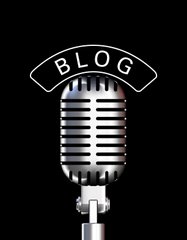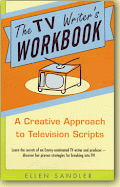



 As the founder and President of a boutique agency, “The Epstein Literary Agency”, Kate Epstein represents authors of commercial nonfiction written for adults. As an agent, she works closely with authors that have been uplifting story to sell.
As the founder and President of a boutique agency, “The Epstein Literary Agency”, Kate Epstein represents authors of commercial nonfiction written for adults. As an agent, she works closely with authors that have been uplifting story to sell.After several years at Adams Media which is a publishing company, she opened her own literary agency in October of 2005. She is a member of the Association of Authors' Representatives. She also participates in writer's conferences from time to time, and values the opportunity to meet writers and share her opinions about the business of publishing.
Her particular areas of interest include pets, memoir, business, health, and lifestyles. Ms. Epstein holds a B.A. with Highest Honors in English from the University of Michigan.
Her notable clients list includes:
Jeff Alexander
Peter Allison,
Mary Beth Temple,
Dusty Rainbolt,
Judy Davids,
Kathryn Lynard Soper
E.I. If you were to make a list of things a writer should not do when querying an agent, what would be on that list?
K.E. Don’t tell me why you wrote your book—tell me why someone would want to read it.
Don’t tell me that people you know all loved the book and thought it would sell. I wish that I could put faith in those people as I realize they are the cheapest advice you can get, but I’m afraid that you get what you pay for. Most people are
(1) just being nice and telling you what they know you want to hear, or (2) interested in the book only if they know the writer, or (3) not really thinking through whether they would seek out a book in the bookstore or actually pay money for it. The remainder may well be wrong. This kind of polling is utterly useless.
Don’t go on too long. A few paragraphs will do. Usually about three.
Don’t keep me in suspense. Tell me about your platform and tell me what your book argues. Sometimes people tell me the problem they see but not the solution they propose. If people don’t tell me about their platforms I assume they don’t have them. A platform is how you’re going to generate attention and sales for your book.
Don’t let it bother you that your query fails to give me the full scope of the book. If you are pursuing publication, you might as well get used to that, as everything that sells a book is by definition shorter than the book—the title, the back cover copy, the catalog copy (even a movie, which is perhaps a two-hour commercial for a book, is generally a condensation). You’re just going to have to figure out how to photograph your project’s best side so I want to see it from every angle.
Don’t specify that you are open to editorial direction. I assume that you are open to it—if you find that you and I share a vision for your book. Being too open signifies not having a vision for your book, and I think your audience will pick up on that. You can change your vision, but have one.
Don’t query before you’re ready. It’s very annoying to request a proposal and then be told it’s not ready. If you’re writing fiction, finish your manuscript first.
Don’t put moving parts in your query. They never show up right and they’re just irritating and your manuscript will not have moving parts, so your ability to create them is irrelevant. Worst of all, they look like spam. Don’t use fancy fonts. Font selection for your book is not your job.
Don’t ignore the directions on an agent’s website.
Don’t assume that agents know everything. We do our best, for our own sakes if no other. If you can’t get an agent right now, the problem could be with us instead of you. Keep writing if you love it.
Finally, don’t forget to be professional. Personally I’m fine with being addressed by my first name, and I don’t need the kinds of headers you use on a business letter. However proofreading and taking a professional tone are vital—being funny is great but being rude or whiny is not. Let your query show me that you’ll be pleasant to work with. About proofreading, I’m pretty friendly to people writing a follow-up email saying “gosh I’m embarrassed I misspelled foreword, please overlook it” though I can’t say whether I speak for all agents. To my mind, if writers were perfect proofreaders we wouldn’t need copyeditors or proofreaders.
E.I. What is your single-best, most-important, can’t-live-without writing tip you would offer to aspiring writers?
K.E. My number one tip is read. Read as much as you can. Read the books in the genre you want to write especially, and especially new releases, and pay attention to what works. Writing for publication is all about the audience, and the way to understand your audience is to join the club. Reading is part of your job as a writer—but only do it if it’s fun, and for God’s sake put down a book if it isn’t fun. If reading the genre you want to write isn’t fun you’re probably writing the wrong genre. Find another.
Photo of Kate Epstein by Ethan Handelman
To learn more about Kate Epstein, please visit her WEBSITE











.png)

No comments:
Post a Comment